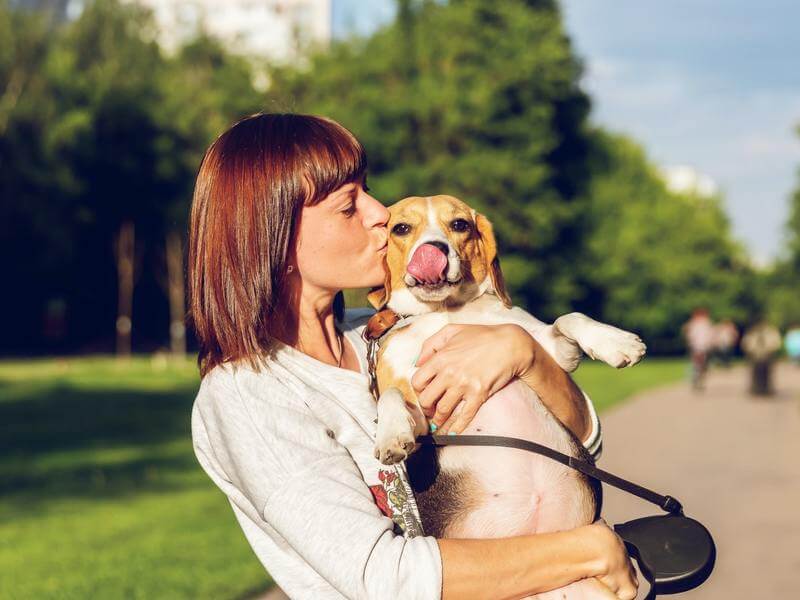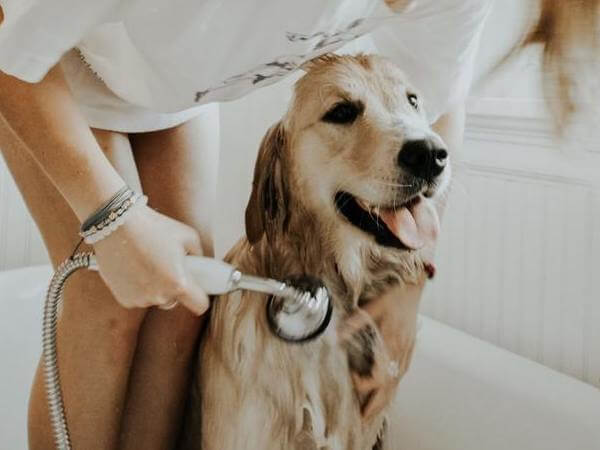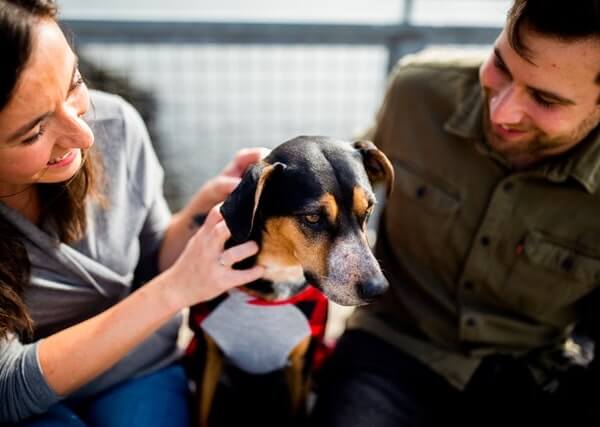
Being a responsible dog owner means more than just feeding and loving your pups. Dog ownership will take up a lot of your time and energy. You’ll have to puppy train, routinely groom your pup, provide healthy meals, and keep them safe from eating gross things that may upset their stomachs and result in dog diarrhea.
To keep their dogs safe, many owners install a wireless dog fence to prevent their hairy Houdini from escaping their backyard and getting into accidents or trouble. While dogs are smart, they may get lost after running off.
In this article, you’ll learn six ways to be a responsible dog owner. A responsible owner will be rewarded with tons of laughter, kisses, and companionship. Decide if you’re up for the challenge of owning a dog and how you’ll keep them safe and healthy.
Table of Contents
1. Veterinary care
Like humans, dogs also require annual physical examinations, vaccines, parasite tests, dental checks, and any needed bloodwork or other tests that your veterinarian recommends. Therefore, you’ll need to bring your dog to the veterinarian on a regular basis.
Adult dogs between the age of one and ten require annual visits to the vet and senior dogs require bi-annual visits to identify any aging problems. Whenever you notice any unusual symptoms in your pup such as vomiting, excessive panting, or lethargy then you should call your vet right away.
Handy Tip: I know this sounds disgusting, but your dog’s poop can tell you a lot about your dog’s health. Different color stools could be signs of internal bleeding in the small intestines or stomach.
2. Puppy vaccinations
It is crucial to vaccinate your pups so that they live a comfortable, long, and happy life. Visit your veterinarian on a regular basis to keep your pooch up to date with all the recommended shots, including Parvovirus, DHPP, Rabies, Distemper, and other serious illnesses.
Between the ages of 5 and 20 weeks, puppies need numerous vaccinations which means multiple visits to the vet. Adult dogs will also need annual vaccinations so make sure to carve out some time to take your pups to the vet.
3. Spay and neuter
If you’re a first-time dog owner, you may wonder if neutering your pup would help them in any way. The short answer is yes. It provides many positive health benefits, including increasing their lifespan, reducing health and behavioral issues, and allowing them to live healthier lives.
Did you know that there is a difference between spaying and neutering? Below we cover the difference between the two.
Spaying Female Dogs
If you have female dogs, you may consider spaying them. When a female dog is spayed, the vet removes both the ovaries and uterus which is a procedure called an ovariohysterectomy. When only the ovaries are removed, the procedure is known as an ovariectomy.
Don’t fret, both surgeries are safe and effective. Once your female dog is spayed, it eliminates her heat cycle and she is no longer able to reproduce. Any behavior related to breeding instincts will stop but this may not be true for every dog.
Neuter Male Dogs
If you have male dogs, you may want to get them neutered to keep them from developing testicular cancer.
Once your male dog is neutered, he will not be able to reproduce. Any behavior related to breeding instincts usually stops but may not be true for all male dogs. It really depends on the dog’s age and other factors. Neutered male dogs are less aggressive and less likely to stray from home.
4. Dog hygiene

Whether you take your pup to a professional groomer or do it yourself at home, dog grooming is another responsibility many owners need to be aware of. When they get dirty from playing in the dirt or mud, they start to have a foul odor.
When that happens, be sure to bathe them. Generally, bathing once a month should be fine depending on your dog breed. Nails should be trimmed every 2 to 4 weeks and you should brush your dog’s teeth daily or 1 to 2 times per week. Periodontal disease is the number one disease among dogs.
5. Respect your surroundings
Whether you live in a house or rent an apartment, being a good neighbor benefits everyone. You’ll want to make sure your canine companion stays safe and confine in your own backyard. If you have to, go ahead and install a wireless dog fence to prevent them from escaping your premises.
Consider the noise level so you’re not disturbing your neighbor. Whether you’re walking your dog around your neighborhood or heading to the vet, you should always obey all leash laws. Lastly, always pick up after them when you’re both out and about.
6. Microchip your pup

According to the American Humane Association, 1 out of 3 pets become lost at some point in their lifetime. About 10 million dogs and cats are lost or stolen every year in the US. Unfortunately, less than 23% of lost pets are reunited with their owners in the US.
For many dog owners, that is more than enough reason to microchip their four-legged friends. Microchipping your dog is a wise investment because it significantly increases the chance you’ll find your pup should they stray from home or escape their leash.
A microchip is a radio-frequency identification (RFID) transponder that carries a unique identification number. The size of this microchip is about the size of a rice grain. There’s no battery or power involved. The microchip injection process is no more invasive than getting a vaccination.
Visit your vet to get your pup microchip. They will inject the microchip under your dog’s skin between the shoulder blades. When the microchip is scanned by a vet or shelter, it transmits the ID number. You must register the ID number with a national pet recovery database or it won’t do any good.
Make sure to include your contact information and phone number when you register your dog’s microchip. If another household member is also responsible for the ownership of your dog, enter their contact information as well so you won’t miss a call.
Conclusion
Owning a dog isn’t a walk in the park. The responsibilities that come with having a dog are numerous but you’ll be rewarded with their lifetime of loyalty, companionship, kisses, and happy memories. Make sure you will be an attentive owner and will be able to meet your pup’s basic needs.
Resources:
https://www.ncbi.nlm.nih.gov/pmc/articles/PMC7114856/

With over five years of specialized experience as an animal writer, my expertise lies in dog nutrition, health, behavior, grooming, and training. I am dedicated to delivering helpful and informative content that caters to the well-being of our furry friends. My primary goal is to empower pet owners with knowledge and ensure our canine companions thrive in health and happiness. In my free time, I love volunteering at local dog rescue centers.






